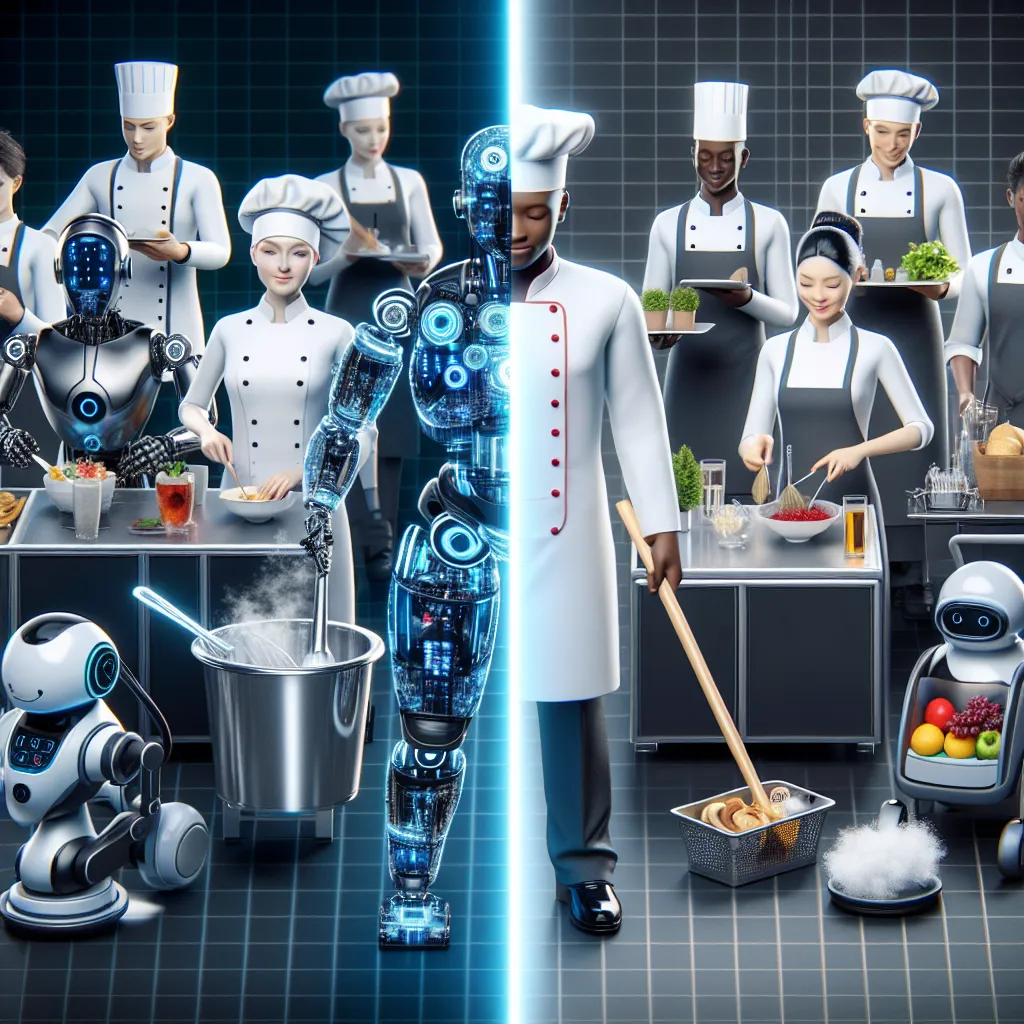The topic of automation effects on the service industry has become increasingly relevant in IELTS Writing Task 2. Based on recent trends and analysis of past exams, it’s likely to appear more frequently in future tests. Let’s explore a sample question and provide a comprehensive answer to help you prepare for this important subject.
Analyzing the Question
Some people think that automation is having a negative impact on the service industry. To what extent do you agree or disagree?
This question asks for your opinion on the impact of automation on the service industry. It’s crucial to clearly state your position and provide well-supported arguments.
Sample Essay
Here’s a model answer that addresses the question effectively:
Automation has undoubtedly transformed various sectors of the economy, and the service industry is no exception. While some argue that this technological advancement has detrimental effects on service-related jobs, I partially agree with this view. In this essay, I will discuss both the negative and positive impacts of automation on the service industry.
On the one hand, automation has led to job displacement in certain areas of the service sector. For instance, self-checkout machines in supermarkets and automated ordering systems in fast-food restaurants have reduced the need for human cashiers and order takers. This trend has resulted in job losses for many low-skilled workers who rely on these positions for their livelihoods. Moreover, the implementation of chatbots and AI-powered customer service systems has decreased the demand for human customer service representatives in many companies.
However, it is essential to recognize that automation has also created new opportunities and improved efficiency in the service industry. The introduction of automated systems has allowed businesses to streamline their operations, reduce costs, and provide faster service to customers. For example, online booking platforms for hotels and airlines have made it easier for consumers to make reservations while reducing the workload for human agents. Additionally, automation has led to the creation of new jobs in areas such as software development, data analysis, and AI maintenance, which require higher-level skills and often offer better compensation.
Furthermore, automation has the potential to enhance the quality of service in many areas. By handling routine tasks, automated systems free up human employees to focus on more complex and personalized aspects of customer service. For instance, in healthcare, automation of administrative tasks allows medical professionals to spend more time interacting with patients and providing personalized care. This shift can lead to improved customer satisfaction and a more rewarding work experience for service industry employees.
In conclusion, while automation has indeed caused job losses in certain areas of the service industry, it has also brought about significant improvements and created new opportunities. The key to addressing the challenges posed by automation lies in adapting to these changes through upskilling and retraining programs. By embracing the benefits of automation while mitigating its negative impacts, the service industry can evolve to meet the demands of the modern economy more effectively.
(Word count: 368)

Writing Tips
When addressing this topic, keep the following points in mind:
- Clear position: Ensure you clearly state your stance on the issue.
- Balanced argument: Discuss both positive and negative aspects of automation in the service industry.
- Specific examples: Use concrete examples to support your points, such as self-checkout machines or AI customer service systems.
- Coherent structure: Organize your essay with a clear introduction, body paragraphs, and conclusion.
- Varied vocabulary: Use a range of vocabulary related to technology and the service industry.
Key Vocabulary
Here are some essential terms to remember when writing about this topic:
- Automation (noun) /ˌɔːtəˈmeɪʃn/: The use of machines and technology to perform tasks without human involvement.
- Displacement (noun) /dɪsˈpleɪsmənt/: The act of moving someone or something from their usual position or role.
- Streamline (verb) /ˈstriːmlaɪn/: To make a system or organization more efficient and effective by simplifying or improving it.
- Upskilling (noun) /ʌpˈskɪlɪŋ/: The process of learning new skills or improving existing ones.
- AI (Artificial Intelligence) (noun) /ˌɑːtɪfɪʃl ɪnˈtelɪdʒəns/: The simulation of human intelligence in machines programmed to think and learn like humans.
- Efficiency (noun) /ɪˈfɪʃnsi/: The state or quality of being efficient, of working productively with minimum wasted effort or expense.
- Implementation (noun) /ˌɪmplɪmenˈteɪʃn/: The process of putting a plan or system into effect.
Conclusion
The impact of automation on the service industry is a complex and evolving topic that is likely to appear in future IELTS Writing Task 2 questions. To prepare effectively, practice writing essays on related themes such as:
- The role of AI in customer service
- The future of employment in the age of automation
- Balancing technological advancement with job security in the service sector
- The importance of adaptability and continuous learning in the modern workforce
By familiarizing yourself with these topics and using the vocabulary and structures provided, you’ll be well-prepared to tackle any question related to automation in the service industry in your IELTS Writing Task 2.
For more information on related topics, you might find these articles helpful: